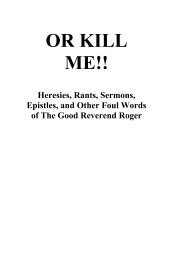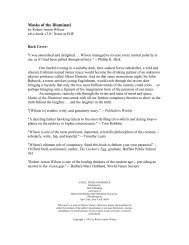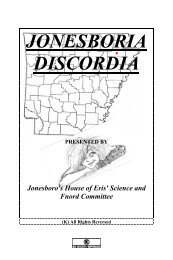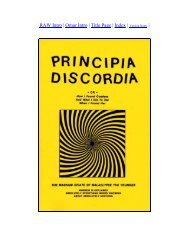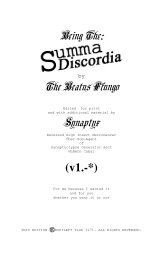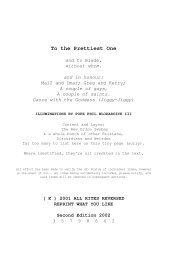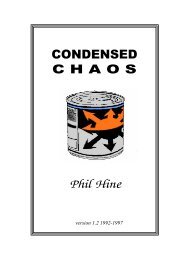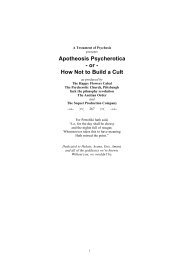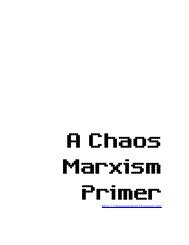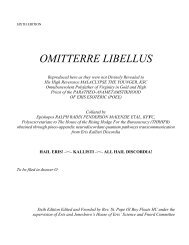Coincidance - Principia Discordia
Coincidance - Principia Discordia
Coincidance - Principia Discordia
Create successful ePaper yourself
Turn your PDF publications into a flip-book with our unique Google optimized e-Paper software.
COINCIDANCE 179<br />
had come up. He spoke unhurriedly, without seeming to be pressed by the<br />
time limit, and still managed to answer all my questions with succinct precision.<br />
Most Americans knout you chiefly as one of the founders of Amnesty International Were<br />
your own experiences of being imprisoned by both the British and the Free State an important<br />
factor in motivating your involvement with political prisoners everywhere?<br />
Yes, of course. But I was also one of the drafters of the European<br />
Convention for the Protection of Human Rights in 1950, which I regard as a<br />
very important step forward in developing an international rule of law, but<br />
by 1961 some of us saw the need for a non-governmental agency that<br />
would bring world attention to individual cases where human rights were<br />
being violated. The Human Rights treaty was dependent upon the good<br />
faith and good will of the governments that signed it. Amnesty International<br />
was created in 1961 to take on cases irrespective of the wishes of governments—whether<br />
the governments liked it or not.<br />
Would you explain how Amnesty works and what it attempts to accomplish?<br />
Amnesty is concerned only with political prisoners. We divide them into<br />
two groups—"prisoners of conscience" and "other political prisoners." We<br />
define "prisoners of conscience" as those who have been imprisoned only for<br />
their political or religious views, who are not accused of violent acts or<br />
advocacy of violence. We demand immediate release in such cases and bring<br />
every possible pressure on the governments involved, to secure immediate<br />
release. The "other political prisoners," those who have committed or<br />
advocated violence, we treat differently. We do not demand release, of<br />
course, but we monitor these cases to see that they are treated humanely<br />
and decently, that they are not tortured, and that the prison conditions<br />
conform with norms of human rights laid down by the United Nations.<br />
What about the shady area—prisoners who have been convicted of violent acts but who are<br />
widely alleged to have been framed for political reasons?<br />
We have a "borderline bureau" that scrutinizes cases of that sort, and we<br />
have developed a rather elaborate internal jurisprudence in evaluating the<br />
evidence before we make a decision. Even so, some cases have to be<br />
reclassified when new evidence is uncovered. We had one case I remember<br />
in which the prisoner himself caused us to change his category. That was a<br />
Black civil rights leader in South Africa, whom we had classed as a "prisoner<br />
of conscience" while he was awaiting trial, but then, in his closing speech to<br />
the Court, he stated that the only way of protecting the Black people in that<br />
country was by armed force. We had to transfer him to our "other political<br />
prisoners" category, since he was advocating violence, and we stopped<br />
asking for his release, which was a very hard decision.



